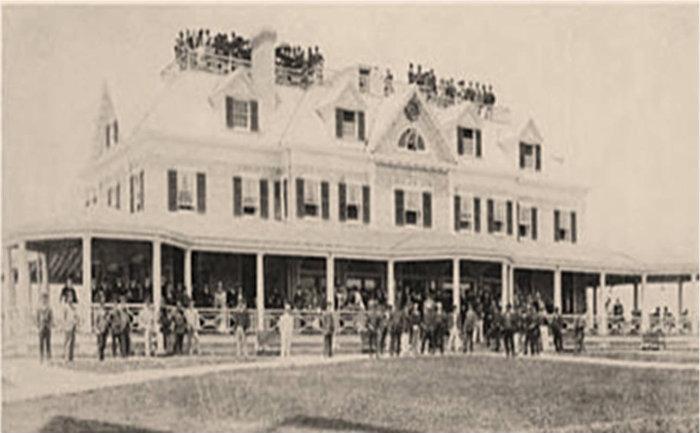In sailing, the word “Corinthian” refers to the non-professional arm of the sport. Sailors compete for the love of it, not for any monetary reward. At some levels of racing, this distinction is strictly enforced according to rules of the International Sailing Federation.
But in the nineteenth century, sailboat racing operated like horseracing today. The actual sailing was left to professionals, while owners ashore wagered over gin and tonics. Part of this was based on the complexity of the boats and the skill and physical strength required to sail them. However, there was also a class distinction. The requisite experience would not have been gained by the comfortable progeny of the moneyed class, but by the working folks who earned their livings at sea. As a result, those who actually did the sailing and earned the honors lacked the proper social standing to be members, or even guests, of the host yacht club.
In 1871, a group of sailors began a new tradition of “Corinthian” racing when they founded the Seawanhaka Yacht Club in New York. Owners would sail their own boats, without professional crew. These radical sailors took pride in their hard-earned yet amateur knowledge of the arts of the sea. But why did they call themselves Corinthians? The ancient tradition considers Corinthians to be degenerates, not amateur athletes.

There were four main games in ancient Greece: the Olympian, Nemean, Pythian, and Isthmian games, the latter held at Corinth. None included sailing events. In all the games, the athletes competed naked, but fortunately this tradition hasn’t been adopted by modern Corinthians. All were amateur in this respect: The victors received wreaths, not monetary prizes. However, both Plutarch and Plato report that the athletes’ home cities lavished awards of significant value on their champions, so the word “amateur” isn’t quite accurate. In any case, I have found nothing to distinguish the games at Corinth from the others with respect to amateurism. Yet the websites of the most eminent “Corinthian” yacht clubs trace the tradition back to this city.

I think the real story is a little different. I certainly wouldn’t wish to suggest that the term was made up by a PR firm, as was the case with Ricardo Montalban’s “Fine Corinthian Leather” which was concocted for Chrysler. Yet there must be a more convincing explanation for the use of the term, and we’ll attempt to configure one next time.
